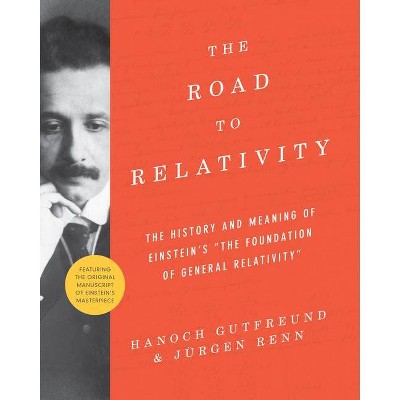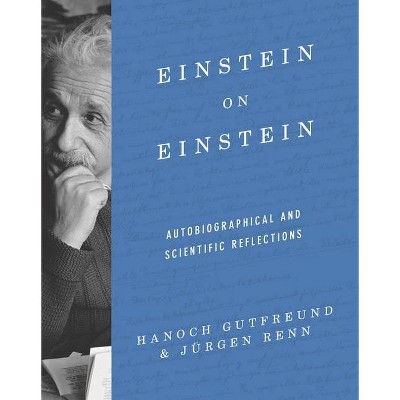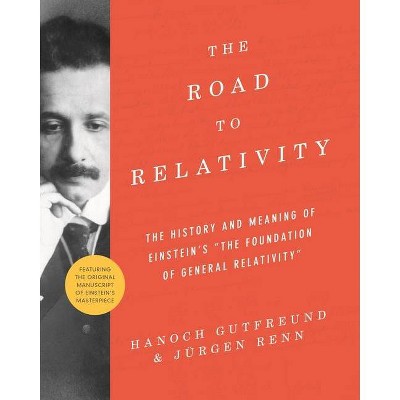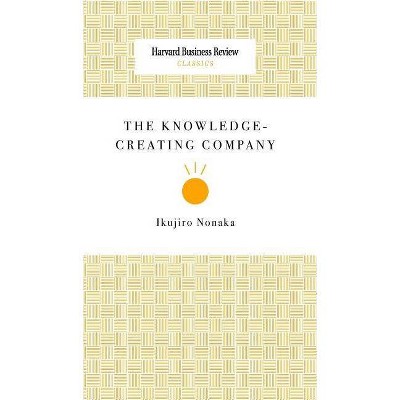The Evolution of Knowledge - by Jürgen Renn (Hardcover)

Similar Products
Products of same category from the store
AllProduct info
<p/><br></br><p><b> Book Synopsis </b></p></br></br><p><b>A fundamentally new approach to the history of science and technology</b> <p/>This book presents a new way of thinking about the history of science and technology, one that offers a grand narrative of human history in which knowledge serves as a critical factor of cultural evolution. Jürgen Renn examines the role of knowledge in global transformations going back to the dawn of civilization while providing vital perspectives on the complex challenges confronting us today in the Anthropocene--this new geological epoch shaped by humankind. <p/>Renn reframes the history of science and technology within a much broader history of knowledge, analyzing key episodes such as the evolution of writing, the emergence of science in the ancient world, the Scientific Revolution of early modernity, the globalization of knowledge, industrialization, and the profound transformations wrought by modern science. He investigates the evolution of knowledge using an array of disciplines and methods, from cognitive science and experimental psychology to earth science and evolutionary biology. The result is an entirely new framework for understanding structural changes in systems of knowledge--and a bold new approach to the history and philosophy of science. <p/>Written by one of today's preeminent historians of science, <i>The Evolution of Knowledge</i> features discussions of historiographical themes, a glossary of key terms, and practical insights on global issues ranging from climate change to digital capitalism. This incisive book also serves as an invaluable introduction to the history of knowledge.</p><p/><br></br><p><b> Review Quotes </b></p></br></br><br>In <i>The Evolution of Knowledge</i>, both academics and nonacademics concerned with the state of our planet will find a lot to think with and elaborate on. This erudite, rich, and important book indeed opens conversations rather than closing them.<b>---Raf De Bont, <i>Isis</i></b><br><br>A global history of knowledge is a breathtakingly ambitious project. . . . Renn faces down the difficulties of crafting such an account with skill and resolve. The result is provocative and challenging.<b>---Joseph D. Martin, <i>Physics Today</i></b><br><br>This book should be required reading for all who consider themselves students of the history of knowledge.<b>---Alfred Freeborn, <i>History of Human Sciences</i></b><br><br>[Renn's] new tour de force, <i>The Evolution of Knowledge</i>, addresses all those concerned with science's fate. . . . In the 1930s, at a moment of existential crisis comparable to today's, [Edmund] Husserl likewise sought to reorient science around shared human experiences and common human needs. Yet Husserl, a notoriously opaque writer, had little hope of communicating his message to the scientific community. With this lucid and accessible book, Renn stands a far greater chance of success.<b>---Deborah R. Coen, <i>Science</i></b><br><br>This is an important book and one that powerfully advances our understanding of how knowledge operates in society while directly engaging with pressing contemporary issues.<b>---Geoffrey Cantor, <i>Times Higher Education</i></b><br><p/><br></br><p><b> About the Author </b></p></br></br><b>Jürgen Renn</b> is a director at the Max Planck Institute for the History of Science in Berlin, where, together with his group, he researches structural changes in systems of knowledge. His books include, with Hanoch Gutfreund, <i> The Formative Years of Relativity: The History and Meaning of Einstein's Princeton Lectures</i> and <i>The Road to Relativity: The History and Meaning of Einstein's The Foundation of General Relativity</i> (both Princeton).
Price History
Cheapest price in the interval: 34.49 on October 23, 2021
Most expensive price in the interval: 34.49 on November 8, 2021
Price Archive shows prices from various stores, lets you see history and find the cheapest. There is no actual sale on the website. For all support, inquiry and suggestion messages communication@pricearchive.us




















